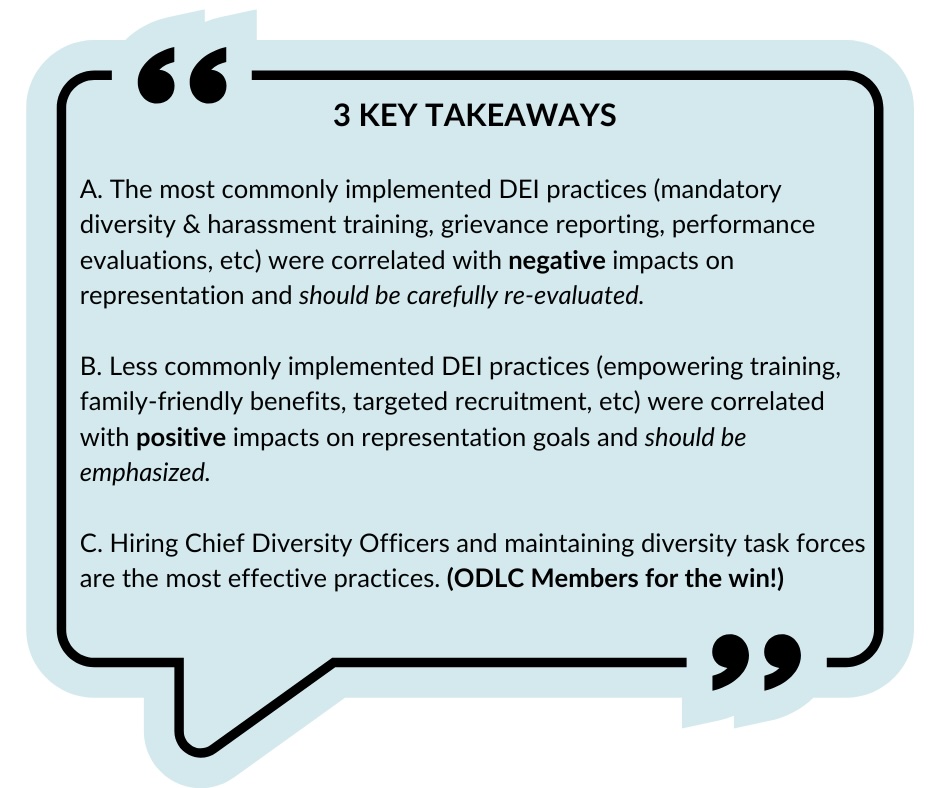In 2016, one of my favorite leadership mentors sent me an article that had been published in Harvard Business Review (HBR), entitled: “Why Diversity Programs Fail.” He wanted to know my thoughts on whether a new mandatory DEI training that was being discussed would be helpful or harmful to our constituents.
The research published in this article demonstrated how mandatory training could have unintended consequences that negatively impact the already marginalized groups they were intended to support.
Even though this article is now several years old, I re-read and reference it often. It forced me to consider the difference between “doing a lot” and “doing what works”when it came to advancing health equity, diversity, and inclusion. For that reason, in my current leadership capacities, I emphasize a 360 review of the good, bad, and unknown implications of each strategic tactic that is proposed before it is implemented.
There is so much hard work being done. Yet, despite the plethora of research endeavors, panels, policies, societies, pipeline programs, and commitment statements, we are seeing slow progress in the metrics that we follow. Why is that? Why do some categories of diversity efforts fail to produce the results we need?
Here is a more recent explanation of why – and suggestions on what to do about it. In this 2024 HBR article, researchers examined the degree to which specific practices either increased or decreased diversity in the organization.
I encourage all leaders to read the article as it outlines the specifics for each type of DEI practice, the measured positive or negative impact, and an explanation of the results. It is eye-opening and could influence your implementation strategy.
Are you doing a lot? Or are you doing what works?
Are you doing the most? Or are you doing what’s meaningful and strategic?
Take a breath and think about it. And then shoot me an email with your thoughts.
Dr. Erica Taylor,
ODLC Founder



